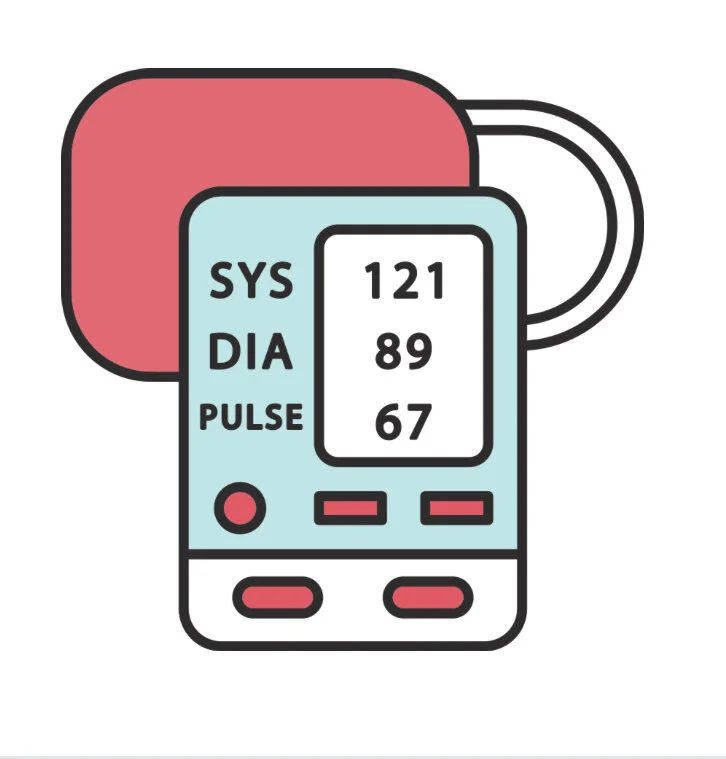Spironolactone and Low Blood Pressure: How much will it drop?
Spironolactone and the Risk of Hypotension
I’ve selected this question below for this week’s question of the week. It allows us to the review some key data regarding blood pressure changes with spironolactone.
Question
I have been given a prescription for spironolactone for female pattern hair loss. I am concerned it might lower my blood pressure as my blood pressure often runs on the lower side of normal. Do you have any data on the chances of patients getting low blood pressure among users of this drug. How much does blood pressure usually drop?
Answer
Thanks for the great question. We’ve talked about the side effects of spironolactone in prior posts.
As far as changes in blood pressure among healthy women, the data has not been all that clear - until recently.
Garg and colleagues recently published a retrospective case series of 403 adult women treated for acne with spironolactone between 2008 and 2019. If we look into that data a bit closer, we can gain some valuable information on how it might affect blood pressure in those with androgenetic hair loss.
Does spironolactone affect blood pressure in health individuals? A new study suggests yes, but not by very much.
The median age of women in this study was 26. For 85 % of patients, the initial dose was 100 mg. Thereafter the dose increased for 50 % of women, stayed the same for 37.5 % and decreased in the remaining women.
Data was available regarding before and after blood pressure readings in 267 patients. The mean decrease in systolic blood pressure was 3.5 mm Hg (95% CI, 2.0 to 4.9) and the mean decrease in diastolic blood pressure was 0.9 mm Hg (95% CI, -0.2 to 2.1). The data was “statistically significant” meaning that spironolactone truly does affect blood pressure - it’s just the changes are quire small. No patient in the study needed to stop spironolactone because of blood pressure problems.
Summary and Comment
This was a nice study because good data and numbers on exactly how spironolactone affects blood pressure in healthy women have been hard to come by. We know that spironolactone can lower blood pressure in those with “ high blood pressure” by as much as 16 mm Hg systolic and 6 mm Hg diastolic. This data comes from a recently meta-analysis by Liu et al. This would lead many to believe that there must be a pretty big risk of low blood pressure in all our patients who use the drug for androgenetic hair loss. However, the real data says otherwise: healthy women who use spironolactone don’t get all that big of a change in their blood pressure and if they do - it does not typically affect them all that much
This study gives us some really good numbers to go on. For most healthy individuals spironolactone doesn’t affect blood pressure enough to really make a difference. If one is concerned, then baseline blood pressure testing and periodic follow up blood pressure testing is appropriate along with a slow increases in the dose. I have prescribed spironolactone to many patients who report low blood pressure and most patients tolerate 50-100 mg doses without any issues. So, is there ever an issue? Of course there is. Fortunately, it’s not common and patients who report lower blood pressure don’t necessarily need to lose out on a potentially effective treatment for them. We need to be cautious about going up too fast or to too high of a dose. Far too many people with androgenetic hair loss have completely shut off any sort of discussion about using spironolactone out of fears about low blood pressure. This study suggests we need to be cautious but not fearful. Low blood pressure is usually not a significant problem.
Reference
Garg et al. Long-term use of spironolactone for acne in women: A case series of 403 patients. J Am Acad Dermatol. . 2021 May;84(5):1348-1355.
Lui et al. Addition of spironolactone in patients with resistant hypertension: A meta-analysis of randomized controlled trials. Clin Exp Hypertens. 2017;39(3):257-263.

